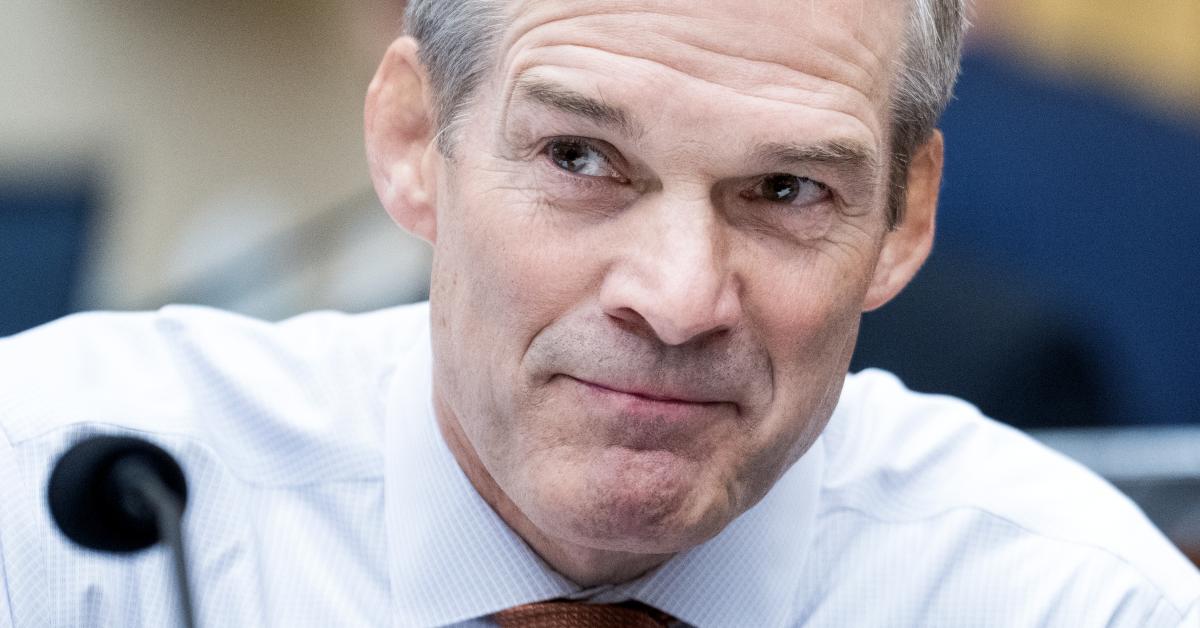We support our Publishers and Content Creators. You can view this story on their website by CLICKING HERE.

The House Select Committee on the Weaponization of the Federal Government uncovered censorship, FBI whistleblower retaliation, and politicization of the nation’s top law enforcement and intelligence agencies over its nearly two-year probe into federal agencies.
On Friday, the House subcommittee housed under Chairman Jim Jordan’s Judiciary Committee, released its 17,000-page final report touting these and other findings. The broad investigation, the subcommittee says, uncovered a “two-tiered system of government—one of favorable treatment for the politically-favored class, and one of intimidation and unfairness for the rest of American citizens.”
The probe led by Chairman Jordan uncovered several stunners, including federal government efforts to censor social media content directly and through proxies, the weaponization of law enforcement resources against Americans, and Democrat-aligned prosecutors’ efforts to use the law to target their political opponents, namely Trump.
The report celebrates the work of the subcommittee bringing “abuses by the federal government into the light for the American people,” but notes that the work is not over to remedy these abuses.
You can read the four part report here.
“The Weaponization Committee conducted rigorous oversight of the Biden-Harris administrations weaponized government and uncovered numerous examples of federal government abuses,” the panel’s chairman, Jim Jordan, R-Ohio, told Fox News Digital in a statement.
“Through our oversight, we protected the First Amendment by investigating the censorship-industrial-complex, heard from numerous brave whistleblowers, stopped the targeting of Americans by the IRS and Department of Justice, and created serious legislative and policy changes that will benefit all Americans,” he said.
FBI Weaponization
The subcommittee also uncovered evidence that the Federal Bureau of Investigation had politicized cases, targeted law-abiding Americans, disregarded protocol, and retaliated against whistleblowers.
Several whistleblowers from the bureau brought concerns to the subcommittee that investigators were politicizing cases involving Jan. 6 defendants and improperly targeting other Americans, like pro-life advocates and traditional Catholics.
At least three whistleblowers came out publicly —including Marcus Allen, Garrett O’Boyle, and George Hill—alleging that they were subjected to retaliation after raising concerns internally, and later to Congress, about the FBI’s pursuit of January 6 suspects, investigation of pro-life Americans following the overturning of Roe v. Wade, and other issues.
O’Boyle, for example, said that he was suspended following protected disclosures to Congress about his concerns the bureau was improperly targeting pro-life activists in the wake of the Supreme Court’s decision to overturn Roe v. Wade. For years, the bureau withheld pay and left his family in limbo after they moved to the Washington, D.C., area at the FBI’s behest.
The agency also came under scrutiny from Congress after memos showed the FBI’s Security Division was using a politically charged questionnaire to assess whether agents should maintain their security clearances.
The supervisory special agent, a registered Democrat whose name was redacted from the letters, was in charge of security clearance reviews for all FBI employees on the East Coast and alleged that other agents involved in the process also share his concerns that FBI leadership has been improperly applying a political litmus test to the question of whether employees get their top secret clearance re-approved, Just the News previously reported.
Government Censorship exposed
Perhaps one of the most impactful parts of its broad probe, the Weaponization Committee uncovered a comprehensive effort by the Biden administration to “coerce” major technology companies, including Meta (Facebook), Alphabet (Google), and Amazon, to censor various online content.
Political pressure on social media companies actually began in the final days of the 2020 presidential campaign which resulted in the censorship of at least one major story about alleged corruption contained on Hunter Biden’s laptop, which could have had a direct impact on then-candidate Joe Biden’s campaign.
The first batches of “The Twitter Files” in 2022 after billionaire businessman Elon Musk took over the social media giant showed Biden campaign officials emailed the platform during the election with requests to remove posts they deemed misinformation. While both Democrats and Republicans had access to these tools, the censorship was skewed towards a liberal bias, Just the News reported.
But further efforts continued after the election when Biden administration officials pressured the companies to adopt new content moderation policies to fight disinformation—which turned out to be disfavored narratives about COVID-19 on Facebook, Amazon’s prominent placement to books the administration disagreed with, and cracking down on vaccine skepticism, the subcommittee concluded in a May 2024 report.
Democrat-aligned lawfare
The subcommittee also probed the various federal and state prosecutions against Donald Trump for political bias and violation of rights.
In a July report, the committee asserted that Manhattan District Attorney Alvin Bragg’s prosecution of former President Donald Trump violated Trump’s constitutional and legal rights, according to a report released Tuesday by the GOP-led House Judiciary Committee and its Weaponization Subcommittee. Trump was formally charged in April 2023 by Bragg. He was found guilty by a jury in May on 34 felony counts of falsifying business records to conceal the hush-money payment to porn star Stormy Daniels.
“The testimony that the Committee and Select Subcommittee have received makes clear that President Trump’s trial was riddled with constitutional defects – defects that should prompt the New York appellate courts to reverse the verdict. The trial violated basic principles of due process,” the committees conclude in the 35-page report.
The report specifically identifies the novel legal theory in the case as cause for concern, arguing that Trump’s defense was hamstrung by the fact that prosecutors never identified the underlying crime that warranted the upgrade of misdemeanor business records charges to felonies.
Jordan’s main committee—Judiciary—also uncovered that Fulton County District Attorney Fani Willis began laying the groundwork for her prosecution of Trump before she had even taken the oath of office. After being sworn in, Willis opening a probe into Trump for alleged election interference in Georgia and later charged him in a racketeering scheme over those efforts.
In closed door testimony to the Judiciary Committee, Willis’ deputy Nathan Wade testified that Willis was planning to prosecute Trump and began discussing a search committee to find a special prosecutor to investigate the former president prior to assuming office in January 2021, Just the News previously reported.
The former special prosecutor was also confronted with his own records showing that he met with White House officials, for eight hours on one occasion, though he told investigators he could not recall the details of the meetings.

 Conservative
Conservative  Search
Search Trending
Trending Current News
Current News 





